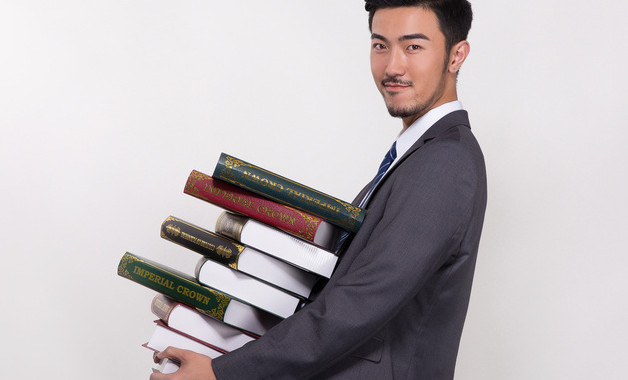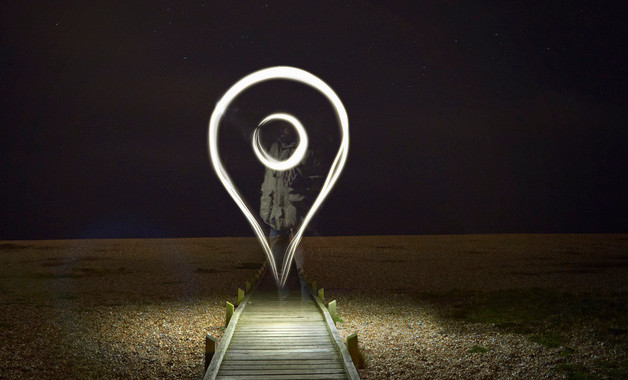
第1篇 世界银行行长金辰勇在华盛顿大学英语演讲稿
president knapp, dean brown, distinguished faculty, students, and guests,
史蒂文·纳普校长、布朗院长、尊敬的各位老师、同学们、各位来宾:
thank you for hosting me here today. it is a privilege to be with you to talk about the challenges before us in the world – and how the world bank group is working to become as effective as possible in improving the lives of the poor and vulnerable.
感谢各位今天的接待。我很荣幸来到这里,谈一谈我们在世界上面临的挑战,以及世界银行集团如何竭尽全力有效地改善贫困和弱势人群的生活。
when we look across the world today and think about the most pressing issues, the ongoing fiscal uncertainty in the united states greatly concerns us. our hope is that policymakers resolve these issues soon. this uncertainty, combined with other sources of volatility in the global economy, could do great damage to emerging markets and developing countries in africa, asia, and latin america that have lifted millions of people out of poverty in recent years.
今天,当我们纵观世界、思考最重要的议题时,围绕美国财政形势的不确定性让我们非常关注。我们希望政策制订者们能够尽快解决这个问题。非洲、亚洲、拉丁美洲的新兴市场和发展中国家近年有千百万人摆脱了贫困,但美国财政形势的不确定性以及导致全球经济波动的其他一些因素可能给它们带来损害。
we also can’t help but focus on the upheaval that is taking place in the middle east. syria is now in its 30th month of war and the toll has been horrific. more than 100,000 people have been killed, 4 million people have been displaced and another 2 million syrians have fled and become refugees in neighboring countries, adding great burdens to jordan and lebanon in particular. the fighting continues within syria, and the impact of broken lives and broken economies only grows by the day.
我们也无法不关注中东正在发生的动乱。叙利亚目前已进入战争的第30个月,造成的伤亡损失令人惊惧。在战乱中10多万人被杀,400万人流离失所,还有200万叙利亚人逃离家园,成为邻国的难民,尤其是给约旦和黎巴嫩带来了沉重的负担。叙利亚境内战乱还在继续,对生活和经济造成的破坏日甚一日。
we should not avert our gaze from the middle east. the world bank group has been playing several roles. at times, we are in the backrooms with diplomats and at others we are on the frontlines with humanitarian aid workers. always, we are working with governments, or companies, or civil society groups to help build strong and sustainable foundations for development. this supports the livelihoods of millions of people in the middle east, and billions more around the world, who aspire to good jobs, a good education, and access to quality health care.
我们不应对中东局势视而不见。世界银行集团中东发挥着多种作用。有时候,我们同外交官和其他人商谈于密室,有时候我们同人道主义援助人员战斗在前线。我们总是在和政府、或者和企业、或者和民间团体协力合作,为发展事业建造牢固和可持续的基础。这些工作支持着中东千百万人民乃至全世界数十亿人的生计——他们都希望有良好的工作、良好的教育和优质的医疗保健。
a critical part of our work is in countries emerging from conflict, affected by conflict, or stuck in a persistent state of fragility. as we know all too well, when a country remains in a long state of fragility, conflict often erupts. the world bank group and the wider global community need to confront the complex institutional and social challenges in these fragile states, because the cost of inaction is high and the reward of well-designed interventions is great. when we have the opportunity to build institutions, infrastructure, and human capacity in fragile states, or when we can put together a deal that brings in desperately needed private sector investment, we must seize it. when we fail to help countries develop in a way that is inclusive or fail to help countries build strong governance, we are all affected by the result, which is often a country engulfed in flames, as is syria today.
我们工作中非常重要的一部分是在刚结束冲突、受冲突影响或者长期陷于脆弱状况的国家。众所周知,当一个国家长期处于脆弱状况时,冲突往往一触即发。世界银行集团乃至国际社会需要在这些脆弱国家直面复杂的制度和社会挑战,原因是无所事事的代价高昂,而设计周密的干预措施则收效巨大。当我们有机会在脆弱国家进行制度、基础设施和能力建设时,或者当我们能够达成一项协议引进急需的私营部门投资时,我们必须抓住机遇。当我们未能帮助国家实现包容性发展时,或者未能帮助国家建立强有力的治理结构时,其后果会影响所有人——往往是一个国家陷入战火,就像今天的叙利亚。
drivers of conflict
冲突的驱动因素
in the middle east, most of the countries experienced relatively strong growth of 4 to 5 percent a year in the decade before the arab spring. yet serious problems were lurking below the surface. an increasingly educated young middle class was frustrated that the few available jobs were reserved for those with more connections than talent. the private sector operated by earning privileges from the state, leading to a form of crony capitalism that only helped a few, and undermined exports and jobs.
在中东,大多数国家在阿拉伯之春之前的2019年都经历过4%或5%的相对强劲增长。然而,外表下隐藏着严重的问题。年轻的中间阶层受教育程度越来越高,令他们沮丧的是稀少的就业机会都留给了那些有关系而不是有才能的人。私营部门的运作要依靠政府提供的特权,形成一种只有利于少数人的裙带资本主义,对出口和就业造成破坏。
the inequities – and the anger – filtered even to the very young. when a million people poured into tahrir square in cairo in 2019 to protest their government, the children of the protesters held protests of their own in classrooms. they demanded better instruction. this is what happens when prosperity is reserved for a select few. all of those left out feel deeply, the burn of inequity.
不平等和愤怒甚至渗透到少年儿童中。2019年当100万人涌入开罗的解放广场抗议政府的时候,抗议者的孩子们也在他们自己的教室举行抗议活动。他们要求改进教学。当繁荣有选择地保留给少数人,这就是结果。所有那些被遗漏的人都深感到不公平的伤害。
the ongoing crises have left many middle eastern countries with a triple challenge. first is restoring macroeconomic stability; second is reforming their economies to meet the high expectations of the people who marched in the streets; and third is managing the transition to new constitutions and more open, contested, multiparty elections. these challenges would be daunting for any single country. but they have all come together in one region. that makes it all the more important for the international community to marshal its resources to support those brave women and men who risked their lives to demand the basic human dignity that is their due.
目前的危机令众多中东国家面临三重挑战。第一是恢复宏观经济稳定;第二是改革经济以满足上街抗议的人民的期望;第三是管理好向新宪法和更公开的、有争议的、多*制的选举过渡。这些挑战对于任何一个国家都是巨大的,但三重挑战同时降临一个地区,就使得国际社会集结资源来援助这些冒着生命危险要求得到应得的基本人类尊严的勇敢男女们显得愈发重要。
that also makes it important to come to the aid of jordan and lebanon today. the world bank provided $150 million in emergency aid to jordan just a few months ago, and we just completed a comprehensive economic and social impact assessment of lebanon that found the country has lost billions of dollars due to the war in syria.
这也使得今天对约旦和黎巴嫩伸出援助之手十分重要。世界银行几个月前向约旦提供了1.5亿美元的紧急援助,我们也刚刚完成了对黎巴嫩的全面的经济和社会影响评估,发现叙利亚内战导致黎巴嫩损失了数十亿美元。
lebanon now hosts more than 760,000 syrian refugees, which could be likened to 56 million refugees entering the united states, 45 million of which would have entered since this january alone. think of the disruption. last week, i attended the un general assembly meeting of the international support group for lebanon. donors pledged some funds for the country, but we need to do much more or we risk catastrophe in lebanon.
黎巴嫩目前接待了超过76万叙利亚难民,按人口比例来说,这相当于美国涌入5600万难民,而且仅仅从今年1月以后来到的就有 4500万人。想想这会带来什么样的混乱。上周,我们出席了联合国大会的黎巴嫩国际援助小组会议。各援助方承诺为黎巴嫩提供一些资金,但我们还需要做得更多,否则黎巴嫩可能会发生巨大的灾难。
our two goals
我们的两大目标
just six months ago, our board endorsed the two goals of the world bank group: the first is to end extreme poverty by 2030; the second is to boost shared prosperity by promoting real income growth for the bottom 40 percent of the population.
仅仅半年前,我们的董事会批准了世界银行集团的两大目标:第一个目标是到2030年终结极度贫困;第二个目标是促进收入最低的40%的人口实际收入的增长,推动共享繁荣。
how does this relate to the situation on the ground in the middle east and in other poor countries? the goal of ending extreme poverty stands on its own as the moral underpinning of all that we do. the fact that more than a billion people live on less than a dollar, 25 a day in 2019 is a stain on our moral conscience. we must help lift people out of poverty without delay, without prejudice, no matter the circumstance, no matter the locale.
怎样把这两个目标与中东及其他贫困国家的现实情况联系起来?终结极度贫困的目标本身就是我们所做的一切工作的道德基础。在2019年的今天还有10多亿人每天生活费不到1.25美元,这是我们道德良心上的一个耻辱。我们必须帮助人民摆脱贫困,一刻不能耽搁,不带任何成见,不管是何种情况、什么地方。
our second goal of boosting shared prosperity is more complex, but relevant to the entire world. the protests during the arab spring, and the more recent ones in turkey, brazil, and south africa were rooted in the universal desire to participate in the global middle class.
我们促进共享繁荣的第二个目标更为复杂,但也与全世界都直接相关。阿拉伯之春期间的抗议活动,以及最近在土耳其、巴西和南非发生的抗议活动,都植根于一种跻身全球中产阶级的普遍愿望。
today, leaders around the world realize that boosting shared prosperity for the bottom 40 percent is becoming more and more critical to ensure stability. it used to be that much of this discontent boiled under the surface. but social media has created an enormous “virtual middle class,” as thomas friedman has called it, who will continue to knock on, and then break down, the door of opportunity.
今天,世界各国的领导人都意识到,促进底层40%的人口共享繁荣对于确保稳定变得日益重要。在过去,许多不满情绪在社会表层下沸腾。但社交媒体创造了一个巨大的、被托马斯·弗里德曼称为“虚拟的中间阶层”的群体,这个阶层会继续叩响然后打破机遇之门。
the lesson is that we should pay much more attention to whether growth reaches all the population, and not just the elite. one way to do so is by looking beyond the overall gdp growth; we need to directly monitor income gains among the bottom 40 percent. economic progress must also be environmentally and financially sustainable over generations.
一个教训是我们应当更多地关注增长是否惠及全体人民而不仅仅是特权阶层。要做到这一点,一个办法就是不能只看总体的gdp增长指标;我们需要直接监测底层40%的收入增长。经济进步还需要在环境上和财政上具有可持续性,延续到子孙后代。
so how can incomes of the less fortunate increase in a sustained way? there is more than one path to shared prosperity. one path is through increased opportunities driven by greater economic growth. another is through a stable social contract, which focuses on raising the living standards of the poor and the disadvantaged. both paths can lead to improved opportunities for citizens if societies can become more dynamic and productive with greater room for social mobility.
那么怎样才能以持续的方式增加贫困人口的收入呢?通向共同繁荣的路不止一条。一条路是通过经济增长创造更多机会。另一条路是通过稳定的社会契约,重点提高贫困弱势人群的生活水平。如果社会更有活力,有更高的生产力,为社会流动性提供更大空间,那么这两种道路就都能为公民带来更多更好的机会。
reaching our first goal of ending extreme poverty by 2030 will not only be historic. it will be extraordinarily difficult. today, our economists estimate that the number of poor people hovers at just over one billion people, or 150 million fewer than in 2019.
达到我们的第一项目标——到2030年终结极度贫困——不仅仅是具有历史意义的,而且是异常困难的。今天,我们的经济学家估计贫困人口的人数徘徊在略稍高于10亿,比2019年少1.5亿。
we are making progress, but nothing is assured in this battle, and it will get much tougher the closer we get to the goal. global growth could be slower than historic trends. disasters driven by a changing climate could reverse years of development success. investors could become even more skittish. long-term financing for much needed infrastructure – already scarce – could dry up.
我们正在取得进步,但在这场斗争中没有什么是确定无疑的,而且我们越是接近目标,困难也会越大。全球增长速度可能会低于历史趋势。气候变化造成的灾害可能扭转多年的发展成果。投资者有可能会变得胆小。基础设施建设急需的长期融资已很稀缺,还有可能枯竭。
at the world bank group, our two goals require us to deliver results for people. as dr. martin luther king jr. once said, our goals must be “transformed from thin paper to thick action.” what will we do—all of us—to translate our plans into effective action to end poverty?
在世界银行集团,这两大目标要求我们为人们取得切实成效。马丁·路德·金博士曾经说过,我们的目标必须“从一页薄纸变为脚踏实地的行动”。我们将如何将计划转化为终结贫困的有效行动呢?
a world bank group strategy
世界银行集团的战略
our answer is that for the first time, we have a strategy that will bring together the entire world bank group – the bank, which works with governments; the ifc, our private sector arm; and the multilateral investment guarantee agency, or miga, which provides political risk insurance. we just released it a few days ago. never before have we defined a strategy that gives us a comprehensive roadmap to guide all parts of our institution around common goals and principles.
我们的回答是,我们第一次有了一个将整个世界银行集团统一起来的战略,包括与各国政府合作的世行;包括我们的私营部门窗口国际金融公司(ifc);也包括提供政治风险担保的多边投资担保机构。我们几天前刚刚发布这一文件。我们过去从未制定过这样一个统一的战略,给予我们一个围绕共同目标和原则指导机构所有部门工作的全面路线图。
why is this important? bureaucracies sometimes operate in ways that keep people away from each other. they tend to create self-enclosed areas of influence. these areas become well-guarded bunkers, or silos. i know something about silos. i grew up in iowa, and we had lots of them. those silos of corn stood starkly alone, especially during those long cold winters. silos perform a critical function in the cornfields of iowa but they have no place at the world bank group.
为什么这一点很重要?官僚机构的运作方式有时让人们相互隔离。他们往往创造自我封闭的势力范围。这些势力范围成为戒备森严的碉堡或者筒仓。我对筒仓有所了解,我在爱荷华州长大,我们那里有很多筒仓。那些贮存玉米的筒仓孤零零地站在地里,特别是在漫长的冬季。筒仓在爱荷华的玉米田里发挥着重要作用,但在世界银行集团没有它们的位置。
how can we – or any other large organization – meet our highest aspirations of serving the poor if we work in a collection of silos? we need to connect the brilliant minds in our institution so that their knowledge flows freely.
如果人们各自在一堆筒仓里工作,我们——或者任何其他大型组织——怎么能够实现为穷人服务的的最高理想呢?我们需要让我们机构中的出类拔萃之辈对接,使他们的知识自由流动。
the world bank group strategy is based on the conviction that the entire organization will work and together as a seamless whole to achieve our inspiring goals. and we know that if we are to have any chance to succeed, we must be selective – first, we must choose our priorities and then, abandon those activities that don’t make the cut.
世界银行集团的战略是基于这样一种信念,即整个机构将齐心协力、团结一致地实现我们的目标。我们也知道,要想取得成功,我们必须具有选择性——首先要选择我们的优先重点,然后是放弃那些非优先领域的活动。
what will we stop doing? we won’t continue working in areas in which others are better. we won’t enter projects for the sole purpose of meeting volume targets for the year. we won’t take on projects just to plant our flag on the ground. and we won’t tolerate behavior that promotes individual interests over the common good.
我们将要停止做哪些事呢?我们将不会继续从事那些别人更擅长的领域。我们不会仅仅出于要完成年度贷款额指标而开展项目。我们不会仅仅为了插上我们的旗子而开展项目。而且,我们绝不容忍将个人私利置于公共利益之上的行为。
so what are our principles?
那么我们的原则是什么?
we will ensure that all our activities have a relentless focus on our two goals.
我们将确保我们的一切活动都坚持不懈地专注于我们的两大目标。
we will become better partners to others so that together we can achieve those goals.
我们将更好地与其他方面合作来实现这两大目标。
we will be bold.
我们将勇往直前。
we will take risks –smart risks. and by that, i mean we will invest in projects that can help transform the development of a country or a region – even if it means we might fail.
我们将勇于冒险——聪明地冒险。我的意思是,我们将投资于那些可能有助于改变一个国家或者一个地区的发展的项目——即使我们有可能失败。
we will excel at delivering local solutions by taking our global knowledge and making sure it is available to countries and companies that need it.
我们将出色地利用全球知识来提供本地解决方案,并确保那些需要这些知识的国家和企业都可以获得这些知识。
we will take advantage of our deep experience to lead cutting-edge global practices on issues such as finance, education, health, infrastructure, energy, and water.
我们将利用我们的丰富经验,在诸如金融、教育、卫生、基础设施、能源和水资源等问题上领导最前沿的全球实践。
we will always look for opportunities to help countries invest in their people. we must help countries become more competitive, and a powerful way for them to do so is by investing in the education, health, and job training of their citizens.
我们将会不断寻找机会帮助各国投资于人民。我们必须帮助各国提升竞争力,而达此目的的一个有效途径是投资于公民的教育、卫生和就业培训。
and we will look to create innovative financial tools that can open up new opportunities for long-term financing that countries desperately need.
而且我们将寻求开发 创新型融资工具,开拓提供各国急需的长期资金的新渠道。
making the strategy a reality
将战略变为现实
our strategy calls for us to become a solutions bank with results for the poor as our central benchmark. three elements of the strategy are worth highlighting.
我们的战略要求我们成为一个提供解决方案的银行,以对贫困人口产生的成效作为我们的主要基准。新战略有三项内容值得强调。
first, we will partner with the private sector to use their expertise and capital to fight poverty. this is particularly important to create good jobs for the poor.
首先,我们将与私营部门联手,利用他们的专业知识和资金来抗击贫困。这一点对于为贫困人口创造良好的就业尤为重要。
second, we will increase our commitment to fragile and conflict-affected states, which will require us to be bolder, take more risks, and commit more resources.
第二,我们将加强对脆弱与受冲突影响国家的承诺,这将要求我们更加大胆,承担更多风险,投入更多资源。
and third, we will be as ambitious as possible on issues that are of global importance, including investing in women and girls and combatting climate change. our response to climate change, for instance, must be bold enough to match the scope of the problem.
第三,我们在具有全球重要意义的议题上要尽可能雄心勃勃,包括投资于妇女和女童、抗击气候变化。例如,我们对气候变化作出反应的力度必须与问题的严重程度相匹配。
creating good jobs
创造良好就业
on the first element, one of the highest priorities at the world bank group will be to help create jobs. how can we most effectively help regions and individual countries position themselves for private-sector-led job growth? the scope of the challenge is daunting – the world needs to create 600 million new jobs over the next decade.
围绕第一个目标,世界银行集团的最高优先事项之一将是帮助创造就业机会。我们如何才能最有效地帮助有关地区和国家创造最佳条件来促进私营部门主导的就业增长?这是一项十分艰巨的挑战—— 全球需要在未来十年内创造6亿个新的就业机会。
a critical pathway out of poverty for the poor is through providing an open and transparent connection to local and global markets. this access can unlock entrepreneurial potential for millions.
帮助穷人摆脱贫困的一条重要途径是以公开透明的方式将他们与本地市场和全球市场联系起来。这种对市场的参与可以释放亿万民众的创业潜力。
for example, one of ifc’s clients, ecom, connects cocoa, coffee and cotton farmers in over 30 countries to global markets. last year, ecom helped more than 134,000 farmers and thousands more through farmer organizations.
例如,国际金融公司的客户ecom将30多个国家里种植可可、咖啡和棉花的农户与全球市场连接起来。去年,ecom向13.4万农民提供了帮助,并通过农民组织帮助了更多人。
we also are expanding our group of partners to include those which are pioneering new business models. just two weeks ago, i met jack ma, the founder of alibaba, a chinese firm that, among other things, accounted for 60 percent of the 8.8 billion packages mailed inside china last year. he showed me his black canvas shoes, which were made by a woman in a small village in china. alibaba was able to drive logistics prices so low that this woman could market her shoes and ship them anywhere in china at a better price than the local shoe store. in just a few years, alibaba has fostered the creation or growth of over 6 million small and medium enterprises in china.
我们也在扩大合作伙伴的范围,吸纳那些开拓新商业模式的企业。就在两周前,我会晤了中国阿里巴巴公司的创始人马云,这家企业在去年中国境内邮寄的88亿个快件中占60%。他给我看他穿的黑色帆布鞋,这是中国一个小村里的妇女做的。阿里巴巴能够使物流价格降到如此之低,使这名妇女有可能把她做的鞋销售到中国任何地方,价格还低于本地的鞋店。在短短几年中,阿里巴巴扶持了中国600多万个中小企业的创业和成长。
that is an example of a transformational business model. but there are many environments that alibaba and other companies stay away from. we at the world bank group serve as a trusted advisor to the private sector, and that often means we will be the first to venture into a risky environment in order to make others feel more comfortable to invest. we know that there are several trillion dollars managed by sovereign wealth funds and institutional investors; much of it is sitting on the sidelines in low-performing funds. so we will actively work to find new ways to attract these private funds to developing country projects. one recent example was our launch of the managed co-lending portfolio program in china. the chinese government agreed to invest $3 billion, alongside ifc; other countries are expressing interest in joining the program.
这是一个具有变革意义的商业模式的例子。但也有很多环境是阿里巴巴和其他企业避之不及的。我们世界银行集团是私营部门可信赖的顾问,这往往意味着我们会率先冒险进入一个有风险的环境,目的是让他人更放心地投资。我们知道主权财富基金和机构投资者管理着数万亿美元,其中很大一部分闲置在表现不佳的基金里。因此,我们将积极努力寻找新的方式来吸引这些私募基金投资发展中国家的项目。最近的一个例子是我们在中国启动了管理联合贷款组合计划。政府同意投资30亿美元,与国际金融公司联手合作;其他国家也表示有兴趣加入该计划。
a priority on fragile states
重点关注脆弱国家
the second example of our strategy involves our commitment to taking risks in some of the most troubled places in the world: fragile and conflict-affected states.
关于我们战略的第二个例子涉及到我们承诺在世界上问题最多的地区——脆弱和受冲突影响的国家——承担风险。
earlier this year, un secretary general ban ki-moon and i traveled to the great lakes region of africa to support the peace, security, and cooperation framework, signed by 11 countries. the region has been in a state of war for more than two decades, and rebel groups in the eastern congo started a new battle a few days before we arrived. just a couple of hours before we arrived in goma, the groups called a cease-fire. despite the tension, crowds of people, most of them women, lined the roads from the un base to a local hospital. they cheered our convoy. but they also held high signs that spoke of the deep trauma they have experienced. i’ll never forget one woman’s sign. it said simply: stop the rape. indeed.
今年早些时候,联合国秘书长潘基文和我访问了非洲大湖地区,以表示对11个国家签署的《和平、安全和合作框架》的支持。该地区20多年来长期处于战争状态,就在我们到达前数日,刚果东部地区的叛乱组织又燃起了新的战火。在我们的飞机降落在戈马几小时前,叛乱组织宣布停火。尽管局势紧张,大批的人群——大部分是妇女——从联合国基地沿途一直排到一家本地医院,他们对我们的车队欢呼,但他们也高举着标语牌,表达他们所遭遇的深深创伤。我永远忘不了一名妇女手持的标语牌上写着:停止奸。
we must move much more quickly, more urgently, to create peace dividends for countries emerging from years of conflict. we know that you can’t have development without peace. but too often we forget that peace won’t last without development. in the great lakes region, we moved quickly to amass an additional $1 billion assistance package to help the region. shortly after our visit, the bank’s board approved $340 million to help finance the rusumo falls run of the river hydroelectric project to bring power to millions of people.
我们必须更快速、更紧迫地行动起来,为刚刚走出多年冲突战乱的国家创造和平红利。我们知道,没有和平就没有发展。但是我们常常忘记,如果没有发展,和平也难以持久。对大湖地区,我们迅速调动了10亿美元的追加援助一揽子计划,为该地区提供帮助。我们访问后不久,世行董事会批准拿出3.4亿美元资金支持鲁苏莫瀑布河水电项目,为数以百万计的人送去电力。
today, i pledge to significantly increase our support to fragile and conflict-affected states. i hope to increase the share of ida core financing – the bank’s fund for the poorest – to fragile states by about 50 percent in the next three years. ifc, our private sector arm, also will commit to increasing its support for fragile states by 50 percent over the next three years.
今天,我在这里明确承诺将大大增加对脆弱和受冲突影响国家的支持。我希望在今后三年中将国际开发协会贷款(世界银行对最穷国的基金)对脆弱国家的支持份额提高50%。我们的私营部门机构ifc也承诺在未来三年将其对脆弱国家的支持提高50%。
the challenge of climate change
气候变化的挑战
the third and final example of our strategy is directly related to our shared prosperity goal. shared means not only making sure that those at the bottom are part of the growth process, but also that growth will not come at the expense of future generations. we need to share the planet and its resources with our children, grandchildren, and great-grandchildren, and that means we must have a bold plan to combat climate change.
我们战略的第三个也是最后一个例子直接关系到我们共享繁荣的目标。共享意味着不仅要确保那些身处底层的人成为增长过程的一部分,而且增长不能以牺牲子孙后代为代价。我们需要和我们的孩子、孙子、重孙共享地球及其资源,这意味着我们必须有一个对抗气候变化的宏伟计划。
climate change poses a fundamental threat to development in our lifetime. it has the potential to put prosperity out of reach for millions of people. every region of the world will be affected, and those least able to adapt–the poor and most vulnerable–will be hit hardest. if we want to end extreme poverty, we have to build resilient communities and mitigate shocks, like climate disasters, so that poor people can make gains in their lives–and keep those gains for the long term.
气候变化带在我们的有生之年对发展构成了根本性的威胁,有可能使亿万人无法享受繁荣。世界各个地区无一幸免,那些适应能力最差的人群 ——穷人和最脆弱的人群 ——受害最大。如果想要终结极度贫困,我们就必须建立具有韧性的社区,缓解诸如气候灾难等冲击,从而让穷人能够有所收益,并长期保持这些收益。
tackling climate change is not an effort that governments can take on alone. we need a response that brings together governments, private sector, civil society, and individuals, following a coordinated, ambitious plan. we can help in many ways, but perhaps most fruitfully by highlighting the increasing costs of climate change and by mobilizing climate finance from the public and private sectors.
应对气候变化不仅是政府单方面的努力。我们需要制定一项协调的雄心勃勃的计划,联合政府、私营部门、民间团体和个人共同作出回应。我们可以从许多方面提供帮助,但也许最有成效的作法是就气候变化不断上升的成本提出*告,并动员来自公共和私营部门的气候融资。
the economic costs of extreme weather events are stunning. coastal city flooding costs $6 billion a year today, but could reach $1 trillion a year by 2050. investing $50 billion a year in protection would avoid those costs, and free up $950 billion every year to invest in better schools, hospitals, and social safety nets.
极端气候事件的经济成本是惊人的。目前沿海城市每年洪灾造成的经济损失高达60亿美元,而到2050年可能达到每年近1万亿美元。每年投资$500亿美元加强防护就可以避免这些损失,省下的$9500亿美元就可以用来改善学校、医院和社会安全网。
today, i am committing the world bank group to direct a greater share of our own financing toward this battle and also to work with all partners interested in working on this problem in a serious way.
今天,我承诺世界银行集团将从世行资金中拿出更大份额用来抗击气候变化,同时也将与所有愿意认真解决这个问题的各方开展合作。
clean energy is our starting point. we will bring together knowledge, best practice, and financial support for countries to address the high costs and policy barriers for the adoption of cleaner energy solutions. we are on track to complete renewable energy resource mapping in at least ten countries over the next three years. we will enable energy subsidy reforms in at least 12 countries and work with partners to create new business models for cooking and lighting that utilize the rapidly improving technology of microgrids. i would also like to see at least 10,000 megawatts of additional capacity installed globally with our direct support in three years — that’s equivalent to the entire installed capacity of peru.
清洁能源是我们的起点。我们将集中知识、最佳实践和财政支持,帮助各国解决采用清洁能源解决方案的高昂成本和政策障碍。我们正在开展工作,帮助至少10个国家在未来三年完成可再生能源资源地图绘制。我们将帮助至少12个国家开展能源补贴改革,并与合作伙伴共同创建新的商业模式,利用迅速改进的微电网技术解决做饭和照明。我也希望看到通过我们的直接支持,三年内在全球范围至少增加1万兆瓦的装机容量,这相当于秘鲁的全部装机容量。
conclusion
结束语
we can reach our goals of ending poverty, boosting shared prosperity, and sharing that prosperity with future generations – but only if we work together with an altogether different sense of urgency. as i mentioned earlier, we must build a social movement to end poverty.
我们可以达到终结贫困和促进共享繁荣并与子孙后代共享繁荣的目标 ,但前提是我们要共同努力,并且要有很强的紧迫感。正如我前面提到的,我们必须开展一场终结贫困的社会运动。
just six months ago, the board of governors for the world bank group laid a foundation for a social movement by endorsing our two goals and declaring that we can end extreme poverty by 2030. now we are seeing interest from all corners. political leaders, including president obama and uk prime minister david cameron, are calling for an end to poverty. faith-based groups such as world vision are calling for an end to poverty. the one campaign, oxfam, save the children, results, and many other civil society groups are calling for an end to poverty. and young people are calling for an end to poverty.
短短半年前,世界银行集团理事会批准了我们的两大目标,并宣布到2030年我们能够终结极度贫困。这为开展一场社会运动打下了基础。现在我们看到各方面对此都有兴趣。政界领袖、包括美国总统和英国首相戴维·卡梅伦都在呼吁终结贫困。世界宣明会等宗教组织也在呼吁终结贫困。统一行动、乐施会、拯救儿童基金会、results以及许多其他民间社会团体都在呼吁终结贫困。年轻人 ——像你们这些乔治·华盛顿大学 的莘莘学子—— 也在呼吁终结贫困。
just this past weekend, 60,000 people gathered on the great lawn of central park to watch the global citizens festival, which rallied around the goal of zero poverty by 2030. i ask all of you here today – join this movement. propel it forward. there are many things you can do – and one you can do from your seats on your smartphones right now: log on to the global poverty project website — , that’s — and sign a petition to end poverty in a generation. let world leaders know that this is an issue of fundamental importance to you.
在刚刚过去的这个周末,6万人聚集在中央公园的大草坪上观看全球公民节,目标就是到2030年实现零贫困。我恳请今天在座的各位加入到这场运动中来。推动这场运动向前发展。你们有很多事情可以做,有一件事你们马上就可以在座位上通过智能手机来做:登录到全球贫困项目网站:,我再重复一遍:,签署一份在一代人时间内终结贫困的呼吁书。告诉世界各国领导人,这对你来说是一个至关重要的问题。
our goals are clear at the world bank group. end extreme poverty by 2030. boost prosperity and ensure that it is shared with the bottom 40 percent and with future generations. we have an opportunity to bend the arc of history and commit ourselves to do something that other generations have only dreamed of. at the central park concert, i called up my four-year-old son, nico, to join me on stage. it was a way to make this goal tangible. when nico is my height and a senior in college like some of you, we could hand over to him and his classmates a world free of extreme poverty.
世界银行的目标是明确的。到2030年终结极度贫困。推动繁荣,并确保底层40%的人以及子孙后代可以共享繁荣。我们面临着一个历史性机遇来完成一项前辈人梦寐以求的事业。在中央公园的演唱会上,我叫了4岁的儿子尼科一起上台,这可以使我们的目标更清晰可见——当尼科长到和我一样高时,到他像你们一样上大学四年级时,我们将交给他和他的同学们一个消除了极度贫困的世界。
this is the defining moral issue of our time. we cannot let over a billion people suffer in extreme poverty when we have the tools and the resources to change their lives for the better. we cannot allow the bottom 40 percent of the population be denied opportunities for jobs, health, and education. we can do better. we have to do better, for nico, for four year olds all over the world and for all future generations. for some problems like climate change, time is of the essence, but to quote martin luther king again, the time is always ripe to do right. now’s the time and we are the people. let’s make it happen.
这是我们这个时代最重大的道德问题。我们有工具和资源来改善10亿多极端贫困人口的生活,不能坐视他们饱受贫困之苦。我们不能允许底层40%的人被剥夺就业、医疗和教育机会。我们能做得更好。我们必须做得更好——为了尼科,为了世界上所有像他这么大的孩子,也为了子孙后代。对气候变化这样的问题,时间是最重要的一个因素。让我再次引用马丁·路德·金的话,“做正确的事情的时机总是成熟的。”时不我待,我们必须采取行动。让我们行动起来,将目标变为现实。
thank you very much.
谢谢各位。
第2篇 伯恩斯在华盛顿大学圣路易斯分校2019毕业典礼上的英语演讲稿
chancellor wrighton, members of the board of trustees and the administration, distinguished faculty, class of 1965, hard-working staff, my fellow honorees, proud and relieved parents, calm and serene grandparents, distracted but secretly pleased siblings, ladies and gentlemen, boys and girls, graduating students, good morning. i am deeply honored that you have asked me here to say a few words at this momentous occasion, that you might find what i have to say worthy of your attention on so important a day at this remarkable institution.
it had been my intention this morning to parcel out some good advice at the end of theseremarks – the "goodness" of that being of course subjective in the extreme – but then irealized that this is the land of mark twain, and i came to the conclusion that anycommentary today ought to be framed in the sublime shadow of this quote of his: "it's notthat the world is full of fools, it's just that lightening isn't distributed right." … more on mr.twain later.
i am in the business of history. it is my job to try to discern some patterns and themes fromthe past to help us interpret our dizzyingly confusing and sometimes dismaying present.without a knowledge of that past, how can we possibly know where we are and, mostimportant, where we are going? over the years i've come to understand an important fact, ithink: that we are not condemned to repeat, as the cliché goes and we are fond of quoting,what we don't remember. that's a clever, even poetic phrase, but not even close to the truth.nor are there cycles of history, as the academic community periodically promotes. the bible,ecclesiastes to be specific, got it right, i think: "what has been will be again. what has beendone will be done again. there is nothing new under the sun."
what that means is that human nature never changes. or almost never changes. we havecontinually superimposed our complex and contradictory nature over the random course ofhuman events. all of our inherent strengths and weaknesses, our greed and generosity, ourpuritanism and our prurience parade before our eyes, generation after generation aftergeneration. this often gives us the impression that history does repeat itself. it doesn't. itjust rhymes, mark twain is supposed to have said…but he didn't (more on him later).
over the many years of practicing, i have come to the realization that history is not a fixedthing, a collection of precise dates, facts and events (even cogent commencement quotes)that add up to a quantifiable, certain, confidently known, truth. it is a mysterious andmalleable thing. and each generation rediscovers and re-examines that part of its past thatgives its present, and most important, its future new meaning, new possibilities and new power.
listen. for most of the forty years i've been making historical documentaries, i have beenhaunted and inspired by a handful of sentences from an extraordinary speech i came acrossearly in my professional life by a neighbor of yours just up the road in springfield, illinois. injanuary of 1838, shortly before his 29th birthday, a tall, thin lawyer, prone to bouts ofdebilitating depression, addressed the young men's lyceum. the topic that day was nationalsecurity. "at what point shall we expect the approach of danger?" he asked his audience. "…shall we expect some transatlantic military giant to step the earth and crush us at a blow?"then he answered his own question: "never. all the armies of europe, asia, and africa … couldnot by force take a drink from the ohio [river] or make a track on the blue ridge in a trial of athousand years … if destruction be our lot, we must ourselves be its author and finisher. as anation of freemen, we must live through all time, or die by suicide." it is a stunning,remarkable statement.
that young man was, of course, abraham lincoln, and he would go on to preside over theclosest this country has ever come to near national suicide, our civil war – fought over themeaning of freedom in america. and yet embedded in his extraordinary, disturbing andprescient words is a fundamental optimism that implicitly acknowledges the geographicalforce-field two mighty oceans and two relatively benign neighbors north and south haveprovided for us since the british burned the white house in the war of 1812.
we have counted on abraham lincoln for more than a century and a half to get it right whenthe undertow in the tide of those human events has threatened to overwhelm and capsize us.we always come back to him for the kind of sustaining vision of why we americans still agree tocohere, why unlike any other country on earth, we are still stitched together by words and, mostimportant, their dangerous progeny, ideas. we return to him for a sense of unity, conscienceand national purpose. to escape what the late historian arthur schlesinger, jr., said is ourproblem today: "too much pluribus, not enough unum."
it seems to me that lincoln gave our fragile experiment a conscious shock that enabled it tooutgrow the monumental hypocrisy of slavery inherited at our founding and permitted us all,slave owner as well as slave, to have literally, as he put it at gettysburg, "a new birth offreedom."
lincoln's springfield speech also suggests what is so great and so good about the people whoinhabit this lucky and exquisite country of ours (that's the world you now inherit): our workethic, our restlessness, our innovation and our improvisation, our communities and ourinstitutions of higher learning, our suspicion of power; the fact that we seem resolutelydedicated to parsing the meaning between individual and collective freedom; that we arededicated to understanding what thomas jefferson really meant when he wrote thatinscrutable phrase "the pursuit of happiness."
but ladies and gentlemen, the isolation of those two mighty oceans has also helped toincubate habits and patterns less beneficial to us: our devotion to money and guns; ourcertainty – about everything; our stubborn insistence on our own exceptionalism, blinding usto that which needs repair, our preoccupation with always making the other wrong, at anindividual as well as global level.
and then there is the issue of race, which was foremost on the mind of lincoln back in 1838. itis still here with us today. the jazz trumpeter wynton marsalis told me that healing thisquestion of race was what "the kingdom needed in order to be well." before the enormousstrides in equality achieved in statutes and laws in the 150 years since the civil war thatlincoln correctly predicted would come are in danger of being undone by our still imperfecthuman nature and by politicians who now insist on a hypocritical color-blindness – after fourcenturies of discrimination. that discrimination now takes on new, sometimes subtler, lessobvious but still malevolent forms today. the chains of slavery have been broken, thank god,and so too has the feudal dependence of sharecroppers as the vengeful jim crow era recedes(sort of) into the distant past. but now in places like – but not limited to – your otherneighbors a few miles as the crow flies from here in ferguson, we see the ghastly remnants ofour great shame emerging still, the shame lincoln thought would lead to national suicide, ourinability to see beyond the color of someone's skin. it has been with us since our founding.
when thomas jefferson wrote that immortal second sentence of the declaration that begins, "we hold these truths to be self-evident, that all men are created equal…," he owned more thana hundred human beings. he never saw the contradiction, he never saw the hypocrisy, andmore important never saw fit in his lifetime to free any one of those human beings, ensuring aswe went forward that the young united states – born with such glorious promise – would bebedeviled by race, that it would take a bloody, bloody civil war to even begin to redress theimbalance.
but the shame continues: prison populations exploding with young black men, young black menkilled almost weekly by policemen, whole communities of color burdened by corruptmunicipalities that resemble more the predatory company store of a supposedly bygone erathan a responsible local government. our cities and towns and suburbs cannot become modernplantations.
it is unconscionable, as you emerge from this privileged sanctuary, that a few miles fromhere – and nearly everywhere else in america: baltimore, new york city, north charleston,cleveland, oklahoma, sanford, florida, nearly everywhere else – we are still playing out, sadly,an utterly american story, that the same stultifying conditions and sentiments that brought onour civil war are still on such vivid and unpleasant display. today, today. there's nothingnew under the sun.
many years after our civil war, in 1883, mark twain took up writing in earnest a novel he hadstarted and abandoned several times over the last half-dozen years. it would be a different kindof story from his celebrated tom sawyer book, told this time in the plain language of hismissouri boyhood – and it would be his masterpiece.
set near here, before the civil war and emancipation, ‘the adventures of huckleberry finn' isthe story of two runaways – a white boy, tom sawyer's old friend huck, fleeing civilization, anda black man, jim, who is running away from slavery. they escape together on a raft goingdown the mississippi.the novel reaches its moral climax when huck is faced with a terrible choice. he believes he has committed a grievous sin in helping jim escape, and he finally writes out a letter, telling jim's owner where her runaway property can be found. huck feels good about doing this at first, he says, and marvels at "how close i came to being lost and going to hell."
but then he hesitates, thinking about how kind jim has been to him during their adventure. "…somehow," huck says, "i couldn't seem to strike no place to harden me against him, but only the other kind. i'd see him standing my watch on top of his'n, ‘stead of calling me, so i could go on sleeping; and see how glad he was when i come back out of the fog;…and such like times; and would always call me honey…and do everything he could think of for me, and how good he always was…"
then, huck remembers the letter he has written. "i took it up, and held it in my hand," he says. "i was a-trembling because i'd got to decide, forever, betwixt two things, and i knowed it. i studied a minute, sort of holding my breath, and then says to myself: ‘all right then, i'll go to hell' – and tore it up."
that may be the finest moment in all of american literature. ernest hemingway thought all of american literature began at that moment.
twain, himself, writing after the civil war and after the collapse of reconstruction, a misunderstood period devoted to trying to enforce civil rights, was actually expressing his profound disappointment that racial differences still persisted in america, that racism still festered in this favored land, founded as it was on the most noble principle yet advanced by humankind – that all men are created equal. that civil war had not cleansed our original sin, a sin we continue to confront today, daily, in this supposedly enlightened "post-racial" time.
it is into this disorienting and sometimes disappointing world that you now plummet, i'm afraid, unprotected from the shelter of family and school. you have fresh prospects and real dreams and i wish each and every one of you the very best. but i am drafting you now into a new union army that must be committed to preserving the values, the sense of humor, the sense of cohesion that have long been a part of our american nature, too. you have no choice, you've been called up, and it is your difficult, but great and challenging responsibility to help change things and set us right again.
let me apologize to you in advance on behalf of all the people up here. we broke it, but you've got to fix it. you're joining a movement that must be dedicated above all else – career and personal advancement – to the preservation of this country's most enduring ideals. you have to learn, and then re-teach the rest of us that equality – real equality – is the hallmark and birthright of all americans. thankfully, you will become a vanguard against a new separatism that seems to have infected our ranks, a vanguard against those forces that, in the name of our great democracy, have managed to diminish it. then, you can change human nature just a bit, to appeal, as lincoln also implored us, to appeal to "the better angels of our nature." that's the objective. and i know, i know you can do it.
ok. rounding third.
let me speak directly to the graduating class. (watch out. here comes the advice.)
remember: black lives matter. all lives matter.
reject fundamentalism wherever it raises its ugly head. it's not civilized. choose to live in thebedford falls of "it's a wonderful life," not its oppressive opposite, pottersville.
do not descend too deeply into specialism. educate all of your parts. you will be healthier.
replace cynicism with its old-fashioned antidote, skepticism.
don't confuse monetary success with excellence. the poet robert penn warren once warnedme that "careerism is death."
try not to make the other wrong.
be curious, not cool.
remember, insecurity makes liars of us all.
listen to jazz. a lot, a lot. it is our music.
read. the book is still the greatest manmade machine of all – not the car, not the tv, not thecomputer or the smartphone.
do not allow our social media to segregate us into ever smaller tribes and clans, fiercely andsometimes appropriately loyal to our group, but also capable of metastasizing into profounddistrust of the other.
serve your country. by all means serve your country. but insist that we fight the right wars.governments always forget that.
convince your government that the real threat, as lincoln knew, comes from within.governments always forget that, too. do not let your government outsource honesty,transparency or candor. do not let your government outsource democracy.
vote. elect good leaders. when he was nominated in 1936, franklin delano roosevelt said, "better the occasional faults of a government that lives in a spirit of charity than theconsistent omissions of a government frozen in the ice of its own indifference." we alldeserve the former. and insist on it.
insist that we support science and the arts, especially the arts. they have nothing to do withthe actual defense of the country – they just make our country worth defending.
be about the "unum," not the "pluribus."
do not lose your enthusiasm. in its greek etymology, the word enthusiasm means simply, "god in us."
and even though lightning still isn't distributed right, try not to be a fool. it just gets marktwain riled up a bit.
and if you ever find yourself in huck's spot, if you've "got to decide betwixt two things," do theright thing. don't forget to tear up the letter. he didn't go to hell – and you won't either.
so we come to an end of something today – and for you also a very special beginning. godspeed to you all.
第3篇 苹果ceo库克华盛顿大学2019毕业英语演讲稿
thank you very much president knapp for that kind intro. alex, trustees, faculty and deans of the university, my fellow honorees, and especially you the class of 2019. yes.
congratulations to you, to your family, to your friends that are attending today's ceremony. you made it. it's a privilege, a rare privilege of a lifetime to be with you today. and i think thank you enough for making me an honorary colonial.
before i begin today, they asked me to make a standard announcement. you’ve heard this before. about silencing your phones. those of you with an iphone, just place it in silent mode. if you don't have an iphone, please pass it to the center aisle. apple has a world‑class recycling program.
you know, this is really an amazing place. and for a lot of you, i’m sure that being here in washington, the very center of our democracy, was a big draw when you were choosing which school to go to. this place has a powerful pull. it was here that dr. martin luther king challenged americans to make real the promises of democracy, to make justice a reality for all of god's children.
and it was here that president ronald reagan called on us to believe in ourselves and to believe in our capacity to perform great deeds. i'd like to start this morning by telling you about my first visit here. in the summer of 1977 ‑‑ yes, i’m a little old ‑‑ i was 16 years old and living in robertsdale, the small town in southern alabama that i grew up in. at the end of my junior year of high school i’d won an essay contest sponsored by the national rural electric association. i can't remember what the essay was about, what i do remember very clearly is writing it by hand, draft after draft after draft. typewriters were very expensive and my family could not afford one.
i was one of two kids from baldwin county that was chosen to go to washington along with hundreds of other kids across the country. before we left, the alabama delegation took a trip to our state capitol in montgomery for a meeting with the governor. the governor's name was george c. wallace. the same george wallace who in 1963 stood in the schoolhouse door at the university of alabama to block african americans from enrolling. wallace embraced the evils of segregation. he pitted whites against blacks, the south against the north, the working class against the so‑called elites. meeting my governor was not an honor for me.
my heroes in life were dr. martin luther king, and robert f. kennedy, who had fought against the very things that wallace stood for. keep in mind, that i grew up, or, when i grew up, i grew up in a place where king and kennedy were not exactly held in high esteem. when i was a kid, the south was still coming to grips with its history. my textbooks even said the civil war was about states’ rights. they barely mentioned slavery.
so i had to figure out for myself what was right and true. it was a search. it was a process. it drew on the moral sense that i’d learned from my parents, and in church, and in my own heart, and led me on my own journey of discovery. i found books in the public library that they probably didn't know they had. they all pointed to the fact that wallace was wrong. that injustices like segregation had no place in our world. that equality is a right.
as i said, i was only 16 when i met governor wallace, so i shook his hand as we were expected to do. but shaking his hand felt like a betrayal of my own beliefs. it felt wrong. like i was selling a piece of my soul.
from montgomery we flew to washington. it was the first time i had ever been on an airplane. in fact it was the first time that i traveled out of the south. on june 15, 1977, i was one of 900 high schoolers greeted by the new president, president jimmy carter, on the south lawn of the white house, right there on the other side of the ellipse. i was one of the lucky ones, who got to shake his hand. carter saw baldwin county on my name tag that day and stopped to speak with me. he wanted to know how people were doing after the rash of storms that struck alabama that year. carter was kind and compassionate; he held the most powerful job in the world but he had not sacrificed any of his humanity. i felt proud that he was president. and i felt proud that he was from the south. in the space of a week, i had come face to face with two men who guaranteed themselves a place in history. they came from the same region. they were from the same political party. they were both governors of adjoining states. but they looked at the world in very different ways. it was clear to me, that one was right, and one was wrong. wallace had built his political career by exploiting divisions between us. carter's message on the other hand, was that we are all bound together, every one of us. each had made a journey that led them to the values that they lived by, but it wasn't just about their experiences or their circumstances, it had to come from within.
my own journey in life was just beginning. i hadn't even applied for college yet at that point. for you graduates, the process of discovering yourself, of inventing yourself, of reinventing yourself is about to begin in earnest. it's about finding your values and committing to live by them. you have to find your north star. and that means choices. some are easy. some are hard. and some will make you question everything. twenty years after my visit to washington, i met someone who made me question everything. who upended all of my assumptions in the very best way. that was steve jobs.
steve had built a successful company. he had been sent away and he returned to find it in ruins. he didn't know it at the time, but he was about to dedicate the rest of his life to rescuing it, and leading it to heights greater than anyone could ever imagine. anyone, that is, except for steve. most people have forgotten, but in 1997 and early 1998, apple had been adrift for years. rudderless. but steve thought apple could be great again. and he wanted to know if i’d like to help.
his vision for apple was a company that turned powerful technology into tools that were easy to use, tools that would help people realize their dreams. and change the world for the better. i had studied to be an engineer and earned an m.b.a. i was trained to be pragmatic, a problem solver. now i found myself sitting before and listening to this very animated 40‑something guy with visions of changing the world. it was not what i had expected. you see, when it came to my career, in 1998, i was also adrift. rudderless.
i knew who i was in my personal life, and i kept my eye on my north star, my responsibility to do good for someone else, other than myself. but at work, well i always figured that work was work. values had their place and, yes, there were things that i wanted to change about the world, but i thought i had to do that on my own time. not in the office. steve didn't see it that way. he was an idealist. and in that way he reminded me of how i felt as a teenager. in that first meeting he convinced me if we worked hard and made great products, we too could help change the world. and to my surprise, i was hooked. i took the job and changed my life. it's been 17 years and i have never once looked back.
at apple we believe the work should be more than just about improving your own self. it's about improving the lives of others as well. our products do amazing things. and just as steve envisioned, they empower people all over the world. people who are blind, and need information read to them because they can't see the screen. people for whom technology is a lifeline because they are isolated by distance or disability. people who witness target=_blank class=infotextkey>;witness injustice and want to expose it, and now they can because they have a camera in their pocket all the time.
our commitment goes beyond the products themselves to how they’re made. to our impact on the environment. to the role we play in demanding and promoting equality. and in improving education. we believe that a company that has values and acts on them can really change the world. and an individual can too. that can be you. that must be you. graduates, your values matter. they are your north star. and work takes on new meaning when you feel you are pointed in the right direction. otherwise, it's just a job, and life is too short for that. we need the best and brightest of your generation to lead in government and in business. in the science and in the arts. in journalism and in academia. there is honor in all of these pursuits. and there is opportunity to do work that is infused with moral purpose. you don't have to choose between doing good and doing well. it's a false choice, today more than ever.
your challenge is to find work that pays the rent, puts food on the table, and lets you do what is right and good and just.
so find your north star. let it guide you in life, and work, and in your life's work. now, i suspect some of you aren't buying this. i won't take it personally. it's no surprise that people are skeptical, especially here in washington. where these days you’ve got plenty of reason to be. and a healthy amount of skepticism is fine. though too often in this town, it turns to cynicism. to the idea that no matter who’s talking or what they’re saying, that their motives are questionable, their character is suspect, and if you search hard enough, you can prove that they are lying. maybe that's just the world we live in. but graduates, this is your world to change.
as i said, i am a proud son of the south. it's my home, and i will always love it. but for the last 17 years i’ve built a life in silicon valley; it's a special place. the kind of place where there’s no problem that can't be solved. no matter how difficult or complex, that's part of its essential quality. a very sincere sort of optimism. back in the 90s, apple ran an advertising campaign we called “think different.” it was pretty simple. every ad was a photograph of one of our heroes. people who had the audacity to challenge and change the way we all live. people like gandhi and jackie robinson, martha graham and albert einstein, amelia earhart and miles davis. these people still inspire us. they remind us to live by our deepest values and reach for our highest aspirations. they make us believe that anything is possible. a friend of mine at apple likes to say the best way to solve a problem is to walk into a room full of apple engineers and proclaim, “this is impossible.”
i can tell you, they will not accept that. and neither should you. so that's the one thing i’d like to bring to you all the way from cupertino, california. the idea that great progress is possible, whatever line of work you choose. there will always be cynics and critics on the sidelines tearing people down, and just as harmful are those people with good intentions who make no contribution at all. in his letter from the birmingham jail, dr. king wrote that our society needed to repent, not merely for the hateful words of the bad people, but for the appalling silence of the good people.
the sidelines are not where you want to live your life. the world needs you in the arena. there are problems that need to be solved. injustices that need to be ended. people that are still being persecuted, diseases still in need of cure. no matter what you do next, the world needs your energy. your passion. your impatience with progress. don't shrink from risk. and tune out those critics and cynics. history rarely yields to one person, but think, and never forget, what happens when it does. that can be you. that should be you. that must be you.
congratulations class of 2019. i’d like to take one photo of you, because this is the best view in the world. and it's a great one.
thank you very much.









